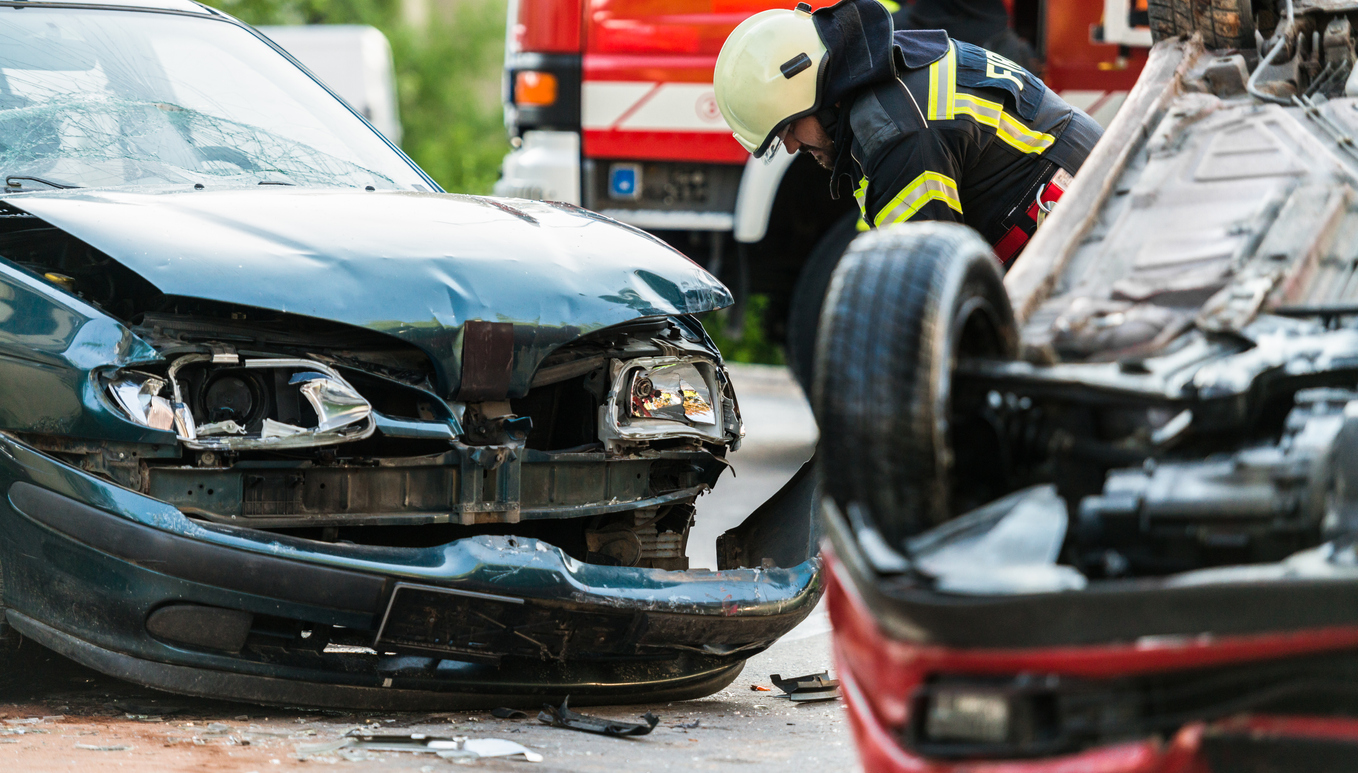Hawk Law Group | September 27, 2023 | Car Accidents

Car accidents sometimes injure people, but they almost always cause property damage. When newer model cars often count their value in the tens of thousands of dollars, even non-injury car accidents can be expensive. “Diminished value” is one way to measure the damage.
Measuring Your Loss
First, a little context. Cost of repairs, “totaled,” and diminished value claims are three ways to measure your property damage after a car accident. You might go to trial on your claim, but in all likelihood, your claim will end at the settlement table.
Cost of Repairs
If you suffer property damage in a car accident that was someone else’s fault, you might file a third-party claim against the at-fault driver’s insurance company. The insurance company might demand that you take the car to at least two garages to obtain repair estimates.
In this case, the value of the “cost of repairs” component of your claim is the cost that you actually pay to fix the car, plus any incidental expenses such as towing and storage. It could add up to a lot.
Diminished Value
It could be the case that even complete repair of the accident’s damage to your car will still not restore it to the Actual Cash Value (ACV) it enjoyed immediately before the accident. The difference, measured in dollars, between your car’s post-repair value and its pre-accident value represents the amount of your diminished value claim.
Diminished value is one sub-component of the property damage component of a car accident claim.
“Immediate” Diminished Value
Immediate diminished value equals the loss in value of your car immediately after the accident, before repair. This measure of damages is typically used only in court.
“Inherent” Diminished Value
Let’s say you’re considering buying a used car. You inspect it, and it appears to be in good condition. Consequently, you’re willing to pay X dollars for it. Then you hear it suffered a serious accident in a long-ago crash. Even though the damage has been fully repaired, you lower your offer to X minus Y dollars.
In this case, Y is the inherent diminished value of the owner’s vehicle as a consequence of the accident. Y is greater than zero because most buyers become suspicious when they hear a car has been involved in a serious accident, even if the car was repaired. Its loss in value is subjective.
“Repair-Related” Diminished Value
A repair-related diminished value claim becomes relevant when even repairs are unable to restore your vehicle to its pre-accident condition. Compare this with diminished value claims, which assume that repairs have completely restored the vehicle.
“Totaled”
Insurance companies have a very specific definition of “totaled.” An insurance company will total your car if the cost of repairs exceeds its remaining value. This rule applies even if you can still drive your car. An insurance company might “total” your car—declare it a total loss–even if the cost of repairs adds up to as little as 70% of the remaining value of the car.
Your totaled car claim is worth the amount of the ACV of the car a split second before the accident.
Who Can File a Diminished Value Claim?
To qualify yourself to file a diminished value claim, you must establish that:
- The other party was at least 50% at fault for the accident (due to Georgia’s contributory fault rules;
- You own the car (leasing doesn’t count); and
- Your title document is not a rebuilt or salvaged title.
Georgia offers perhaps one of the nation’s best legal environments for filing a diminished value claim.
Talk to a Georgia Car Accident Lawyer
Measuring the value of car accident property damage is surprisingly complex. So complex, in fact, that if your car’s value was high before your accident, it might make sense to speak to a car accident lawyer about your claim. The longer you delay, the weaker your claim is likely to become.
For more information, please contact the car accident lawyers at Hawk Law Group at our nearest location to schedule a free consultation today.
We serve throughout the Central Savannah River Area and it’s surrounding areas:
Hawk Law Group – Augusta, GA
338 Telfair St, Augusta, GA 30901, United States
(706) 722 3500
Hawk Law Group – Evans, GA
4384 River Watch Pkwy, Evans, GA 30809, United States
(706) 863 6500
Hawk Law Group – Thomson, GA
146 Railroad St A, Thomson, GA 30824, United States
(706) 361 0350
Hawk Law Group – Waynesboro, GA
827 Liberty St, Waynesboro, GA 30830, United States
(706) 437 9122
Hawk Law Group – Aiken County, SC
156 Laurens St NW, Aiken, SC 29801, United States
(803) 226 9089
We also serve in Edgefield County, SC.